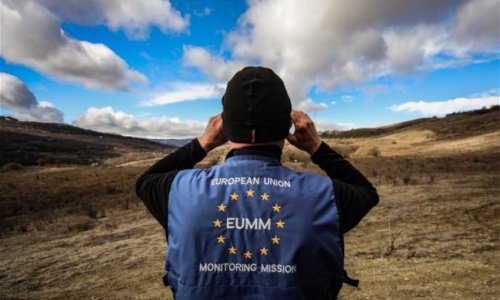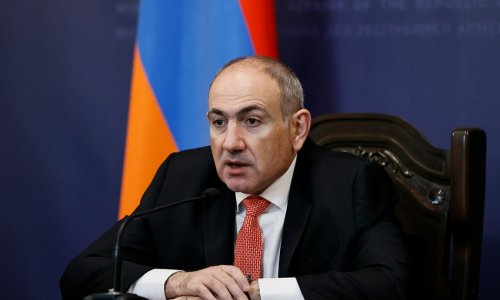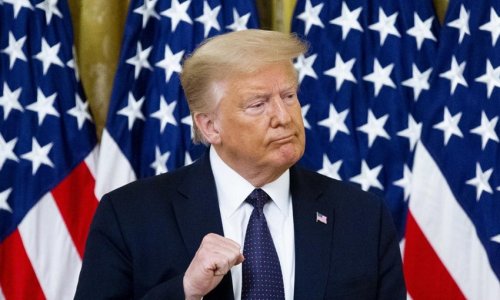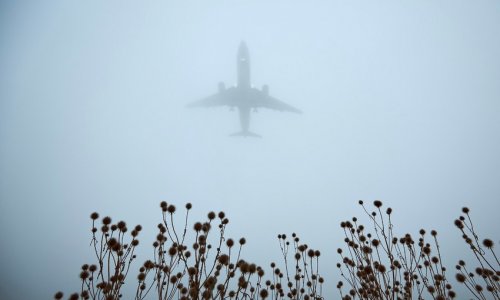Sex education, common in western schools, is taking place in deeply conservative rural Pakistan, a largely Muslim nation of 180 million people.Approximately 700 girls are enrolled in eight schools run by the Village Shadabad Organisation. The sex education lessons begin when the pupils turn eight and cover puberty, rights issues, and teaches them how to defend themselves from attack."We cannot close our eyes," says Akbar Lashari, head of the organisation. "[Sex is] a topic people don't want to talk about, but it's fact of our life."Public discussion about sex is taboo in Pakistan. Few institutions provide organised sex education, and in some places it has been banned. However, the teachers operating in Johi village, in poverty-stricken Sindh province, say most residents support the scheme.Lashari says most of the girls in the village used to reach puberty without realising they would menstruate; some married without understanding the mechanics of sex.The lessons teach the girls about marital rape – a revolutionary idea in Pakistan, where forcing wives to have sex is not a crime. "We tell them their husband can't have sex with them if they are not willing," Lashari said.The lessons are taught alongside more traditional subjects, and parents are informed about the curriculum before their daughters enrol. None has objected and the school has faced no opposition, Lashari says.The eight schools received sponsorship from BHP Billiton, an Australian mining company that operates a nearby gas plant, but Lashari says sex education was the villagers' idea.Sarah Baloch, a teacher whose yellow shalwar kameez brightens up the dusty schoolyard, says she hopes to help girls understand what growing up means. "When girls start menstruating they think it is shameful … [they] don't tell their parents and think they have fallen sick," she says.Baloch teaches at a tiny school with just three brick classrooms. Three girls cram into each seat made for two and listen attentively. Baloch holds aloft a flashcard which shows a girl stopping a man from touching her leg. Others encourage girls to tell their parents or friends if someone is stalking them. The girls are shy but the messages are sinking in."My body is only mine and only I have the rights on it. If someone touches my private parts I'll bite or slap him in the face," says Uzma Panhwar, 10.The lessons also cover marriage. "Our teacher has told us everything that we'll have to do when we get married. Now we've learned what we should do and what we should not," says Sajida Baloch, 16.Many of Pakistan's most prominent schools, including the prestigious Beaconhouse school system, have been considering the type of sex education practised in Johi. "Girls feel shy to talk to their parents about sex," says Roohi Haq, director of studies at Beaconhouse, one of the largest private school networks in the world.But there is certainly great demand for such knowledge. A Lahore-based doctor, Arshad Javed, has written three books on sex education and says he sells about 7,000 copies each year. None, however, have been bought by schools.Not everyone agrees with sex education lessons, partly because tradition dictates that young people should not have sex before adulthood. Recently, the government forced the elite Lahore grammar school to remove sex education from its curriculum."It is against our constitution and religion," announced Mirza Kashif Ali, president of the All Pakistan Private Schools Federation, which represents more than 152,000 institutions nationwide. "And besides, what's the point of knowing about a thing you're not supposed to do? It should not be allowed at school level."In neighbouring India, many government schools formally offer sex education, but Pakistani government schools have no such plans. Nisar Ahmed Khuhro, the education minister for Sindh province, was shocked to hear of the lessons. "Sex education for girls? How can they do that? That is not part of our curriculum, whether public or private," he said.But Tahir Ashrafi, who leads the Pakistan Ulema council alliance of moderate clerics, says such lessons are permissible under Islamic law, as long as girls are segregated and the teaching confined to theory. "If the teachers are female, they can give such information to girls within the limits of sharia law," he adds.(theguardian.com)ANN.Az
Girls in Pakistan village given pioneering sex education lessons - PHOTO
World
20:40 | 27.02.2014
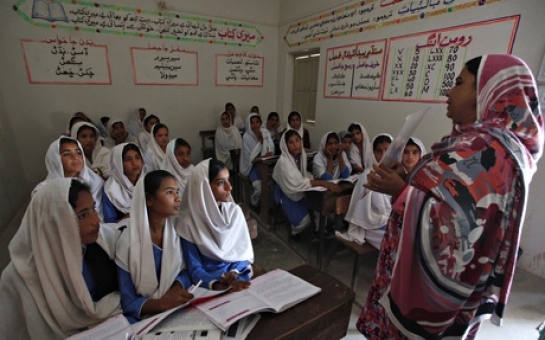
Girls in Pakistan village given pioneering sex education lessons - PHOTO
Sitting in neat rows, a group of Pakistani schoolgirls in white headscarves listen intently as their teacher describes how their bodies will change during puberty. When she asks what they should do if a stranger touches them inappropriately, the class erupts. "Scream," says one. "Bite," suggests another. "Scratch really hard with your nails," says a third.
Follow us !

